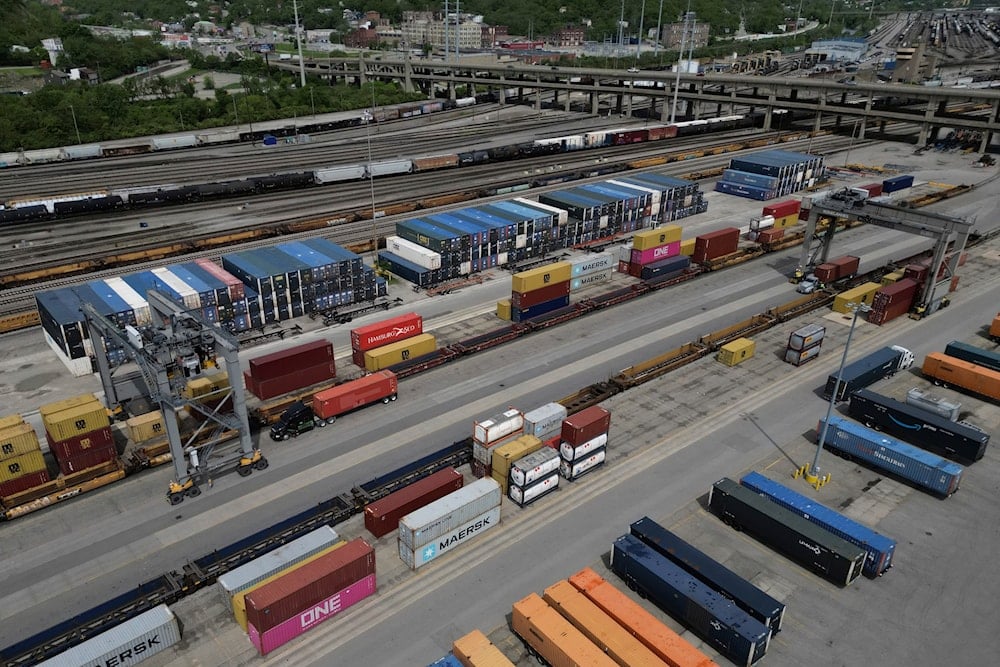US expects countries to provide offers in tariff talks by Wednesday
The US has asked trade partners to submit their best tariff and quota offers by June 4 as the 90-day pause on retaliatory tariffs nears expiration.
-

Shipping containers are loaded onto trucks at CSX Intermodal Terminals, a supplier of rail-based freight transportation, at CSX Queensgate Rail Yard, on May 7, 2025, in Cincinnati. (AP Photo/Carolyn Kaster)
The United States has asked its trade partners to submit their best offers by June 4 in ongoing tariff negotiations, according to a draft letter obtained by Reuters on Monday.
The move is aimed at expediting talks as the 90-day pause on retaliatory tariffs, enacted under President Donald Trump, is set to expire on July 8.
The draft letter, prepared by the US Trade Representative’s office, outlines Washington’s strategy for wrapping up complex negotiations with dozens of countries.
According to the report, the US is requesting comprehensive proposals from participating countries on several fronts:
- Tariff and quota offers to expand market access for US industrial and agricultural products
- Plans to address non-tariff trade barriers
- Commitments on digital trade and economic security
These elements are part of Washington’s broader strategy to secure favorable trade conditions amid a shifting global economic environment.
Last week, Kevin Hassett, Director of the White House National Economic Council, stated that the US had finalized three trade agreements with foreign nations, which are now pending Trump’s approval.
With the deadline fast approaching, the US is signaling urgency in closing negotiations before the retaliatory tariffs resume next month.
US 'undermining' trade truce: China
On a related note, China accused the United States earlier today of having “severely undermined” the recent US-China trade truce, pushing back against Trump’s claims that Beijing was not upholding its end of the agreement.
In a statement, China’s Ministry of Commerce called Trump’s accusations “baseless” after he alleged via social media that China had failed to meet its commitments under the deal, which established a 90-day rollback of tariffs and trade restrictions to create space for further negotiations and avoid a full-blown trade war.
Beijing insisted it was honoring the agreement responsibly, and instead accused Washington of engaging in “erroneous practices”, citing a series of recent US moves, which included:
- Restrictions on the sale of chip design software to China
- A ban on American firms from using or funding Huawei’s AI chips
- A planned crackdown on visas for Chinese students, including those from Hong Kong
According to the ministry, "The US side has unilaterally escalated new economic and trade frictions, exacerbating the uncertainty and instability of bilateral economic and trade relations," adding, "Instead of reflecting on its own actions, it has turned the blame onto China."

 3 Min Read
3 Min Read










